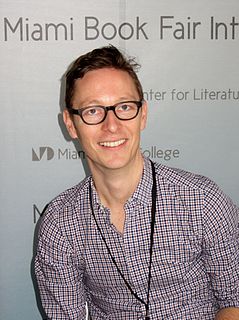A Quote by Mihaly Csikszentmihalyi
Why is it that, despite having achieved previously undreamed-of miracles of progress, we seem more helpless in facing life than our less privileged ancestors were? The answer seems clear: while humankind collectively has increased its material powers a thousandfold, it has not advanced very far in terms of improving the content of experience.
Related Quotes
Science has an uncomfortable way of pushing human beings from center stage. In our prescientific stories, humans began as the focal point of Nature, living on an Earth that was the center of the universe. As the origins of the Earth and of mankind were investigated more carefully, it became clear that Nature had other interests beyond people, and the Earth was less central than previously hoped. Humankind was just one branch of the great family of life, and the Earth is a smallish planet orbiting an unexceptional sun quite far out on one arm of a run-of-the-mill spiral galaxy.
We recognize that our progress as a species does not have to be defined in terms of wealth or material and physical growth any more than our progress as individuals has to be defined in terms of physical growth. Physical growth of the body reaches a limit, but the character and the soul of the individual continues to grow, or at least has a chance to continue, often to our last breath. It is simple minded to define our well being in material terms, when that well-being has an aesthetic dimension, and intellectual dimension, a moral dimension.
Our task is not to find the maximum amount of content in a work of art, mush less to squeeze more content out of the work than is already there. Our task is to cut back on content so we can see the thing at all. The aim of all commentary on art now should be to make works of art - and, by analogy, our own experience - more, rather than less, real to us.
A sustainable economy represents nothing less than a higher social order one as concerned with future generations as with our own, and more focused on the health of the planet and the poor than on material acquisitions and military might. While it is a fundamentally new endeavor, with many uncertainties, it is far less risky than continuing with business as usual.
In recent years our knowledge of modern technology has increased considerably, and as a result we have witnessed remarkable material progress, but there has not been a corresponding increase in human happiness. There is no less suffering in the world today, and there are no fewer problems. Indeed, it might be said that there are now more problems and greater dangers than ever before.
These Souls with great Material Possessions were allowed this because of Past Good Works in their Previous Life, but now feel there is no need for Spiritual Progress. They are too easily forgetting why they were granted this Material Wealth in the first place. Therefore we must stop them from accumulating more Material Gains to Guide them back to the right path.
You're not chasing syndication any more. It used to be a big thing. "Let's make 100 episodes and we'll get paid for life". You know? And what does the sheer amount of content that's being made do to syndication after a while? It just seems like there's more content than there is hours for everyone to watch it. But it's some of the best content that's ever been created.
If any one faculty of our nature may be called more wonderful than the rest, I do think it is memory. There seems something more speakingly incomprehensible in the powers, the failures, the inequalities of memory, than in any other of our intelligences. The memory is sometimes so retentive, so serviceable, so obedient; at others, so bewildered and so weak; and at others again, so tyrannic, so beyond control! We are, to be sure, a miracle every way; but our powers of recollecting and of forgetting do seem peculiarly past finding out.
Our knowledge of circumstances has increased, but our uncertainty, instead of having diminished, has only increased. The reason of this is, that we do not gain all our experience at once, but by degrees; so our determinations continue to be assailed incessantly by fresh experience; and the mind, if we may use the expression, must always be under arms.
The religious naturalist is provisioned with tales of natural emergence that are, to my mind, far more magical than traditional miracles. Emergence is inherent in everything that is alive, allowing our yearning for supernatural miracles to be subsumed by our joy in the countless miracles that surround us.





































